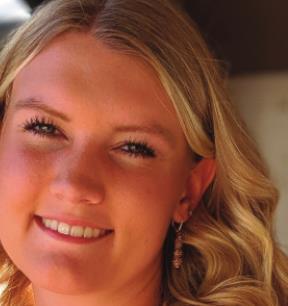Occupational Stereotypes
As defined by Merriam-Webster dictionary, stereotype is defined as “something conforming to a fixed or general pattern… especially a standardized mental picture that is held in common by members of a group and that represents an oversimplified opinion, prejudiced attitude, or uncritical judgment.” When we think of stereotypes, we do not typically think of them in regard to certain occupations. I think it is worth discussing though.
Often times, when a person is considering what field to enter or job to go into, they don’t consider the possible stereotypes they might be accepting as well. Occupational stereotypes are certainly a thing, and while I’m sure they are experienced in every occupation to some degree, let’s consider some of the most common examples. A stereotype for a librarian might be that they are boring and quiet. A stereotype for a police officer might be that they are rigid and unfair. One for politicians might be that they are deceptive and corrupt. Finally, a stereotype for journalists might be that they are biased and callous.
One aspect of stereotypes is that they sometimes take something that is true, to some degree, of a group, and the stereotype exaggerates it. While the occupational characterizations listed above might be true in some cases, they certainly do not apply to all in those occupations. I am of the opinion that society’s deep belief in these characterizations and stereotypes is partly what makes them persist. Maybe each of these fields do present employees or workers with these characterizations. But what about the genuine workers who do not represent their occupation’s stereotypes? The workers who are trying to combat these characterizations? The workers who are trying to improve their field of work and move it into a new direction? What good are their efforts if society continues to encourage the very stereotypes that they are trying to put an end to?
To explain further, members of society making definitive statements such as, “All politicians are crooked,” or, “All cops are corrupt and unfair,” or, “All journalists are negative and biased,” — these statements are not helpful, and they do not allow room for change. How are the interactive librarians, justice-seeking cops, proactive politicians, and truthful journalists of the world supposed to make a difference in their fields if they are constantly being told they are just like the rest?
We, as a society, need to be a part of the change we want to see in the world and stop pushing these “all”, “never”, and “always” narratives. We need to stop casting judgments and stones. We need to recognize genuine, caring workers when we see them. We need to recognize the work they are doing to halt these persistent stereotypes. We need to allow them to create and be leaders of new, helpful characterizations. Positive characterizations that will become the new normal and the new standard in their fields, leaving those old characterizations behind, rare, and forgotten. But they can only do that if more people uproot and put down their century-old assumptions and judgements. We’ve gotten so comfortable in our discontentment and dissatisfaction. Let’s step out of that place, put down our stones, and be open to the development of something new and good.
God bless, Cibola!

